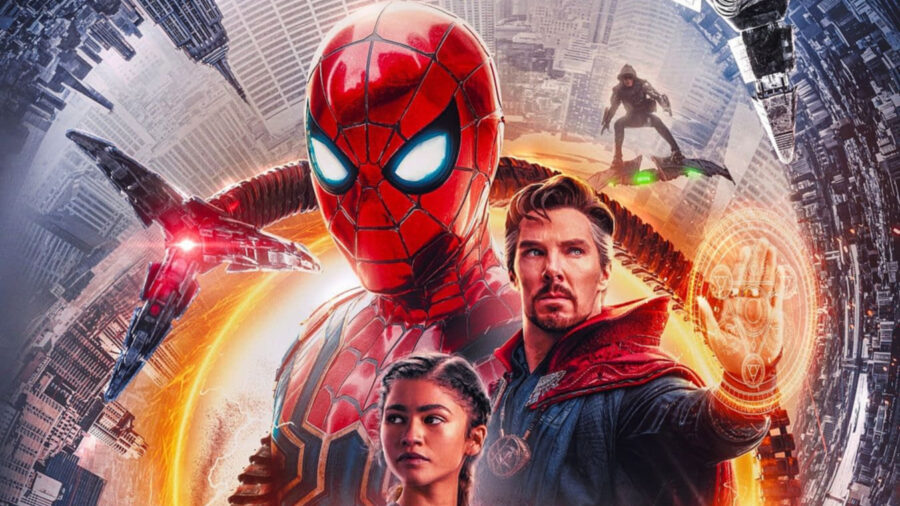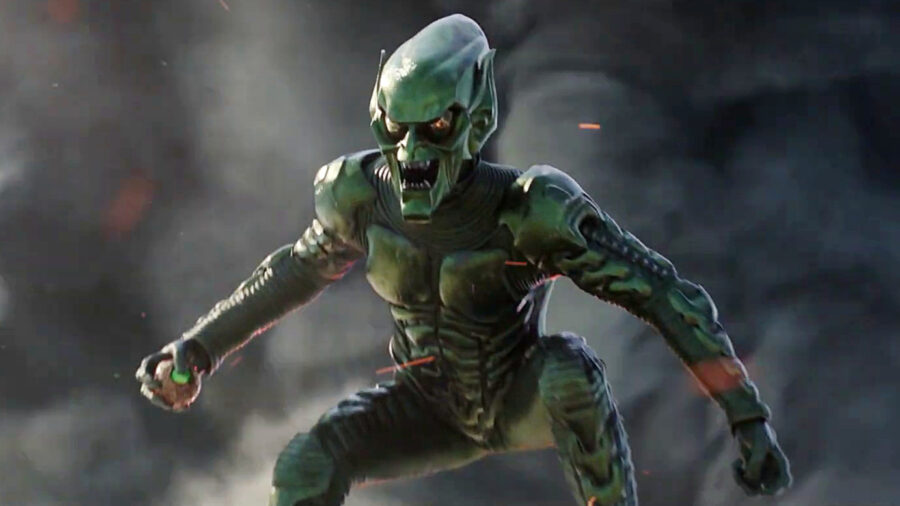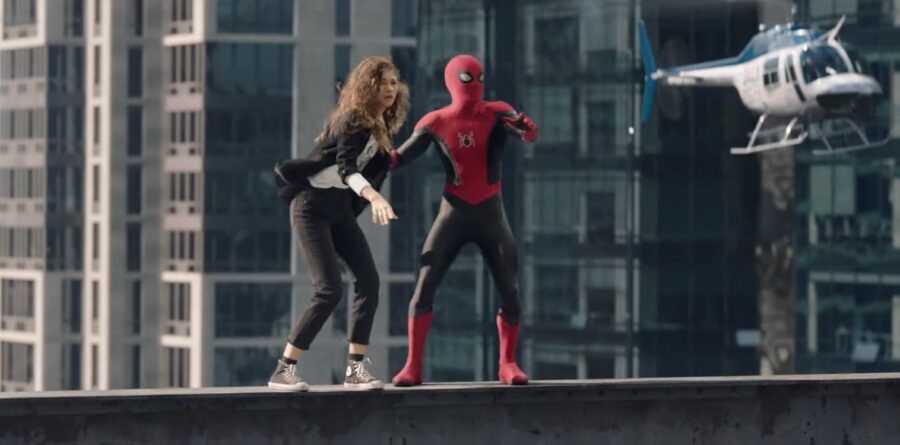Spider-Man: No Way Home Review – Marvel Sabotages Their Spidey
Spider-Man: No Way Home brings in the multiverse with more success than failure, but it also backfires against Marvel's own web-slinging superhero in the worst ways.
This article is more than 2 years old

Spider-Man: No Way Home is undoubtedly one of the biggest undertakings that the Marvel Cinematic Universe has decided to try. While their own legacy of superheroes has had immense event movies, this is the film that decides to pull from two decades of Spider-Man cinema and establish a larger world that not only affects Disney’s brand of Marvel characters but past iterations of the Spider-Man universe. It’s a heavy load to carry and so much of the hype around Spider-Man: No Way Home is based upon this chance to revisit and possibly even correct the Spider-Man films of the past.
And if you have any affinity for the Tobey Maguire or Andrew Garfield versions of Spider-Man and their gallery of villains, chances are you will walk away from Spider-Man: No Way Home with some level of satisfaction. The inclusion of Maguire and Garfield is the worst kept secret in blockbuster history since Benedict Cumberbatch denied his role as Khan in Star Trek: Into Darkness. While this review won’t spoil any particulars about their appearances, rest assured that they walk away from the movie with the most shine on them. This goes doubly for Garfield who is definitely on something of a redemption arc here and it works surprisingly well. One of the most effective emotional beats calls back to The Amazing Spider-Man 2 and allows that film’s attempt at heart to ring even truer. And Maguire has one of the most powerful moments in the film without having to utter a single word. It’s a testament to these two actors and their important contributions to the character of Spider-Man.

The villains are more of a mixed bag. Spider-Man: No Way Home has to adhere to the tonal consistency of the Marvel Cinematic Universe and that means that the baddies all end up sounding pretty similar across the board. They will quip like any other Marvel Cinematic Universe character and it often feels out of place. Though certain villains get more of a focus – Jamie Foxx as Electro is probably the biggest surprise here – they all get at least one moment to stand out among the crowd. However, when it comes to the larger plot and character moments, they mostly fall flat. One villain becomes the de facto prime antagonist and their usage in the story feels perfunctory and unearned. And hearing them have to recite familiar lines turns them into nothing more than pull-string dolls. It’s a shame because you can tell most of them are happy to play these characters once more. Some feel more enthused than others – Alfred Molina is serviceable but not as engaged as some others in the ensemble – but it is hard to deny the power of nostalgia with these characters.
The real blow to Spider-Man: No Way Home comes at the cost of Marvel’s current Peter Parker. There is an episode of Batman: The Animated Series titled “Legends of the Dark Knight” in which kids tell stories about their interpretations of Batman. Eventually, they get to see the real Batman in action. On the commentary track of this episode, the creators admit that their Batman looks lame in comparison to the other imagined versions the kids created. This same effect ends up happening with Tom Holland’s Spidey. He’s still loveable in his own unique way, but when paired against the other Spider-Men and their foes, his specific issues and conflicts start to look dull. It’s an unfortunate side effect of this multiverse experiment and one that ends up crippling a big chunk of the movie.

While there is some endearing (though ploddingly formulaic) drama in the first act of Spider-Man: No Way Home, that all slowly gets chipped away once the villain plot kicks off in earnest. And by the end of the film, it ends up being a moot point. It’s hard to talk about this without inadvertently spoiling things so tread lightly, but suffice to say that there is a clear desire to return to a more familiar status quo for the character of Peter Parker at the film’s end. And although so much of Spider-Man: No Way Home sabotages Holland’s version, the ending essentially promises a totally blank slate for the character to build on. On the one hand, that makes the character’s story up to this point feel unimportant. On the other hand, it also means that the sky is the limit for Marvel’s own Spider-Man. And fans will certainly be giddy with the tease promised in the film’s last few moments.
But, at the end of the day, Spider-Man: No Way Home feels like the worst kind of comic book storytelling: it only exists to heap fan-service upon the viewer and create a new foundation to build upon. Maybe that future will be a bright one, but the last stop on the road to get there is a plotty mess that will only make you more eager to revisit Spider-Man’s past than dream about his future.












